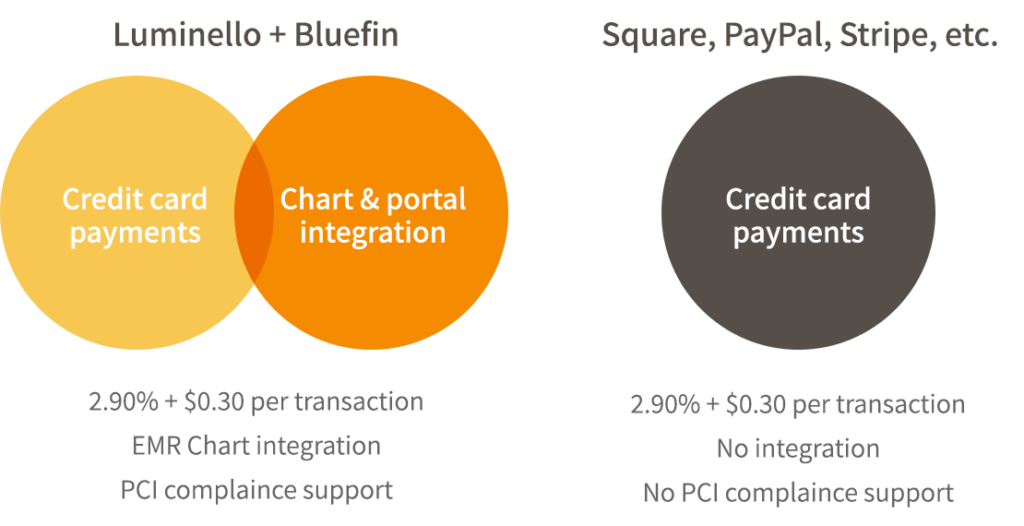Hi and welcome to the next installment in our private practice mini-series – today we’re going to focus on psychiatry and therapy private practice startup decisions you need to consider and make.
This is video 4 of 6 in our series Starting a Psychiatry or Therapy Private Practice:
- Episode 1: The Mechanics of Getting Started
- Episode 2: Income in Private Practice
- Episode 3: Marketing your Private Practice
- Episode 4: Start-up Decisions You Must Make
- Episode 5: Technology in Private Practice
- Episode 6: The Highly Efficient Private Practice
Disclosures
I’m Ken Braslow, and I’m a board-certified child/adolescent and adult psychiatrist. I trained at UCSF, run my own private practice in San Francisco, CA, and founded Luminello, the electronic medical record for psychiatrists and therapists.
There are no other commercial conflicts of interest.
Goals
The goals of today’s presentation are to think through the potential pros and cons of all the decision points you’ll encounter in starting a practice, and then to come up with an action plan to implement your decisions.
Overview
We’re going to cover the big decisions that you must consider as a new business owner, including how to structure your practice from a legal perspective, how to think about insurance coverage, and how to handle money.
Legal structure
Luminello EMR
Try our free plan for as long as you’d like.
Learn more
Let’s start out discussing legal structure. Most people who think about hanging up their own shingle are thinking about starting a sole-proprietorship, which is the default legal structure for any small business. While it requires no additional work to set up, be sure to get your tax ID number from the IRS, so that you’ll never have to use your social security number in paperwork. It only takes a minute to do online.
However, there are some advantages to thinking about more complex legal structures. An S corporation provides some additional legal protection, though no additional malpractice protection. It requires you to file a corporate tax return in addition to your individual tax return, and you’ll most likely want an accountant to do that. However if you are in a kind of group practice where you work with other colleagues, but you actually own your own individual practice, you may want to consider this route, to protect yourself in case one of your colleagues get sued.
Another option is a C corporation, which again, provides legal protection of your personal assets, but not malpractice protection, just like an S-corporation. It also requires another tax return and likely an accountant to do that. There are some additional benefits to a C corporation over an S-corp, like having pre-tax parking and commuter benefits, being able to offer pre-tax flexible spending plans or health savings accounts, pre-tax health insurance, etc.
You’ll want to think through and perhaps crunch the numbers with an accountant to see if the additional expense incurred in having these corporate structures justifies the tax savings. And you may want to think through with a lawyer how useful the asset protection is for you. That said, just because there’s extra paperwork, time and cost, doesn’t mean that it’s not worth taking advantage of these possibilities.
Of course, you can always start out as a sole proprietor, and then incorporate later.
Insurance coverage
Let’s talk about what kind of insurance coverage you should get for your practice. For starters you should always obtain malpractice insurance before you see your first patient. A $1 million / $3 million dollar policy is the one most commonly offered. You should definitely shop around, and there’s always good discounts for those new to practice.
Cyber coverage – if you have a HIPAA breach, it’s great to be covered as you’ll have to pay for notifications and even credit reports if financial information is jeopardized, as well as potential fines. Some malpractice policies automatically include this but many others don’t. Be sure to ask.
Slip-and-fall coverage – this is different than malpractice coverage. While some malpractice policies include it,others don’t. It’s often required by landlords, and well worth having in case somebody trips on a banana peel outside your office.
Asset protection – now, I’m not talking about insurance per se but thinking about how you should protect your personal assets is also meaningful. Being a corporation is actually a type of insurance, although it doesn’t cover malpractice. But if you get sued for anything outside of malpractice, being a corporation may protect your personal property and other assets.
Money
Now on to talking about money management.
Bookkeeping is the process of keeping track of your practice income and expenses. You’ll either want to hire a bookkeeper to do this for you, or use software, like QuickBooks. A bookkeeper can be expensive, but if you don’t have the desire to think about the financial aspects of your practice, then this is a good investment because she or he will keep track of the money coming in and going out, and come tax time, you will be in great shape for doing your taxes.
On the flip side, if you like dealing with math and are interested in managing this on your own, you can use software like QuickBooks. If you do go this route, I highly recommend you hire a QuickBooks expert or bookkeeper to show you around for at least an hour or two, so you can start off on the right path. Far, far better to invest a little time at the beginning to get your systems down correctly, then to have to go back and fix and redo things later on. With QuickBooks, you will likely only need about 5% of what the software offers, so it’s useful to know which 5% to use and how to use it, so you can maximize your efficiency.
Now let’s talk about accounting. An accountant can help you with your taxes at the end of the year, but also give you good advice on the tax implications of various legal or financial decisions you may have to make. Some people only talk to their accountants once a year at tax time, and others have the kind of relationship where they ask them questions throughout the year. You should make sure you and your accountant share similar expectations around this.
Taxes – who’s going to do your taxes? If you’re a sole proprietorship, you most likely can file them on your own, but you may want an accountant to do it the first time, so that they can cue you to tax savings that you might have missed. If you’re incorporated, don’t even think about doing them on your own, just pay an account to do it. It’s well worth the time and cost.
Banking – you’re going to need to set up a business checking account, even if you’re a solo proprietorship. You should never, ever combine business and personal accounts, as this is a setup for confusion for your own finances, for taxes, and if you ever get audited, will make the audit process a nightmare. Just set it up at the beginning and never have to think about it again.
Conclusion
So, that wraps up today’s presentation – I’d recommend you take the time now to think through all your options, run it by your colleagues, and most importantly, test out your assumptions. And then in a six months or a year go back and reevaluate – what matched or exceeded your expectations, and what didn’t? And if necessary, go through this process again – hopefully the time you spend now will keep you from spending much more time on this down the road.
And, browse more helpful content in our Private Practice Hub resource center for lots of other free, useful tips. Thanks for tuning in and wishing you the best in building and growing your practice.


